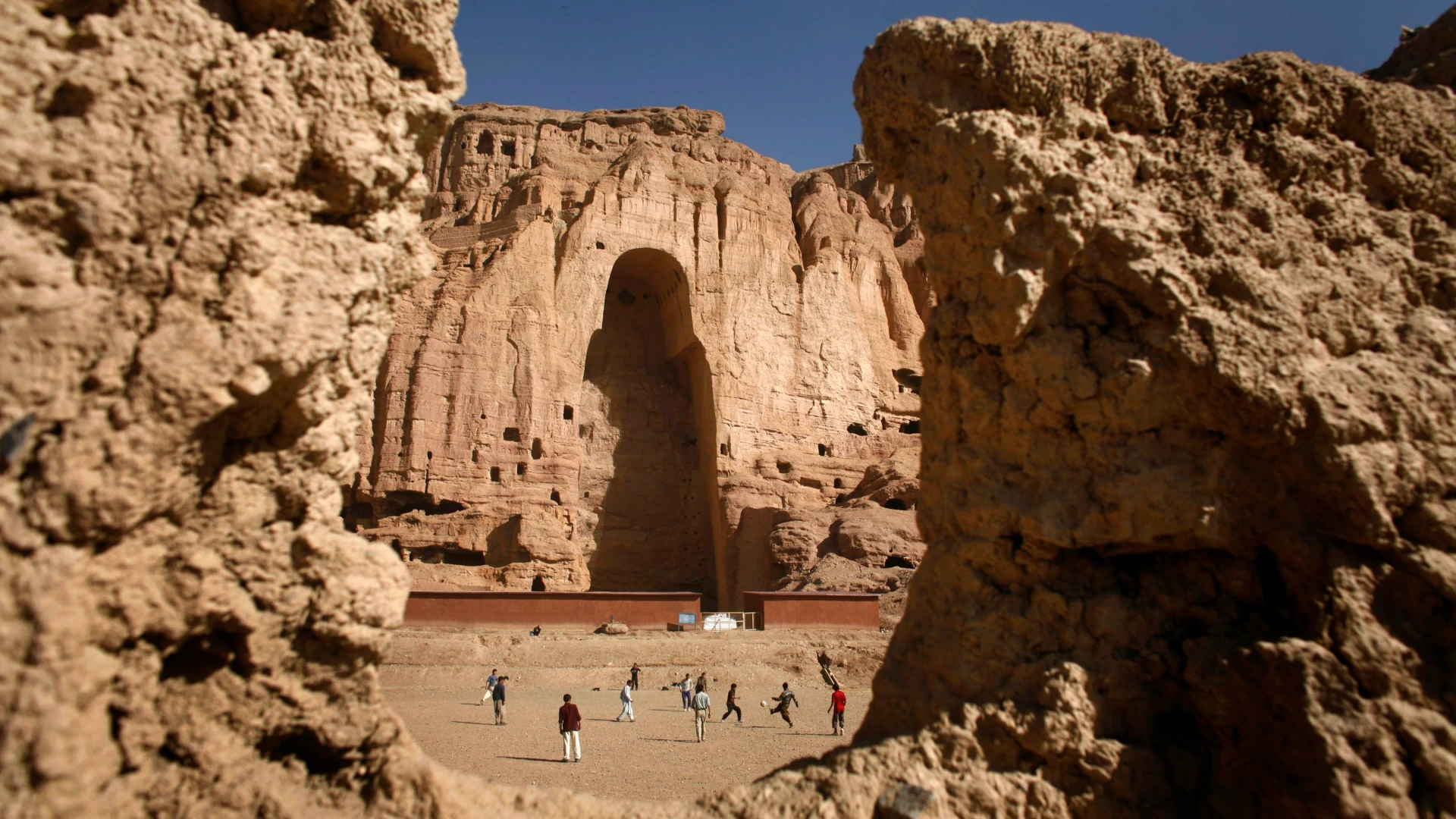By: Robert Wei
Recently, three Taliban soldiers gazed at the enormous hole in the 125-foot cliff, where one of Afghanistan’s tall and symbolic Buddha statues had once stood. Wondering what happened at the site, they openly thought about who should bear the blame for the destruction of the religious figure that occurred 22 years ago in 2001. Some people see that the new Taliban regime is taking a more practical approach to diplomacy than the one that ruled from 1996 to 2001.
In 2001, Taliban leader Mohammad Omar carried out orders to destroy the Buddha statues as the terrorist group perceived them as false idols. The sixth-century artifact was blown up and smashed to pieces. This inhumane action shocked the rest of the world and secured the Taliban’s reputation as terrorists and Islamic extremists. Now in August of 2021, the Taliban retook control of Afghanistan and the Bamiyan Buddha statues hold symbolic and economic importance to the region. “Bamiyan and the Buddhas in particular are of great importance to our government, just as they are to the world,” Atiqullah Azizi, the Taliban’s Deputy Culture Minister, explained in an interview. He said more than 1,000 sentries have been assigned to protect cultural history across Afghanistan, regulating access and supervising ticket sales to view the destroyed sculptures. The Taliban are now a ruling government of a nation and want to be viewed as a warm and happy government, just like any other nation.
However, there are Taliban members who find it challenging to accept artifacts that they continue to perceive as sacrilegious. Abdullah Sarhadi, the governor of Bamiyan province, expressed his dedication to safeguarding Afghanistan’s rich cultural heritage. Nonetheless, he suggested that tourists should be guided towards alternative locations. “We are Muslims, we should follow the demands of God.” Sarhadi defended the order to destroy the Buddhas as a “good decision.” In an interview, he said he was held by the United States at Guantánamo Bay.
The Afghani people are filled with doubt and mistrust. Only a small number of individuals have forgiven the acts that human rights organizations claim the Taliban carried out between 1996 and 2001, targeting the predominantly Shiite Muslim minority group known as the Hazaras. This minority, consisting of relatively progressive and educated individuals, is still impoverished but currently continues to openly oppose the Taliban’s policies.
In conclusion, there are some people who still think the destroying of the Buddha was a good decision and most others think that this action should have the Taliban punished for the next few years to come. The Taliban should bear the blame for the destruction of the religious figure that occurred 22 years ago in 2001. Also, some people see that the new Taliban regime is taking a more practical approach to diplomacy than the one that ruled from 1996 to 2001. Even if the Taliban say they will restore the Buddhas, they are not very trustworthy and easy to mislead people.











